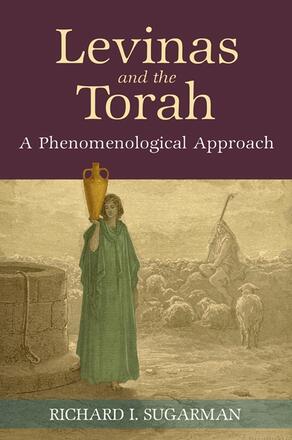
Levinas and the Torah
A Phenomenological Approach
Alternative formats available from:
A Levinasian commentary on the Torah.
Description
The French philosopher Emmanuel Levinas (1906–95) was one of the most original Jewish thinkers of the twentieth century. This book interprets the Hebrew Bible through the lens of Levinas's religious philosophy. Richard I. Sugarman examines the Pentateuch using a phenomenological approach, drawing on both Levinas's philosophical and Jewish writings. Sugarman puts Levinas in conversation with biblical commentators both classical and modern, including Rashi, Maimonides, Sforno, Hirsch, and Soloveitchik. He particularly highlights Levinas's work on the Talmud and the Holocaust. Levinas's reading is situated against the background of a renewed understanding of such phenomena as covenant, promise, different modalities of time, and justice. The volume is organized to reflect the fifty-four portions of the Torah read during the Jewish liturgical year. A preface provides an overview of Levinas's life, approach, and place in contemporary Jewish thought. The reader emerges with a deeper understanding of both the Torah and the philosophy of a key Jewish thinker.
Richard I. Sugarman is Professor of Religion at the University of Vermont. He has published several books, including Rancor against Time: The Phenomenology of Ressentiment, as well as numerous articles on Levinas.
Reviews
"Sugarman's book is a welcome contribution to the maturing field of Levinas studies. Beyond the work's unique integration of Levinas and biblical interpretation, it serves as a gentle introduction to major themes and terminology in the philosopher's oeuvre, a different key in which to access Levinas's conceptual language. " — H-Net Reviews (H-Judaic)
"Levinas and the Torah is a rich and compelling text that provides the reader with a general overview and the necessary exegesis and hermeneutic tools for further inquiry. Through persuasive and spirited analysis, Sugarman makes clear a generous intention for his reader. " — Phenomenological Reviews
"Sugarman rightly treats Levinas as a thoroughly Jewish religious thinker, an approach to the great thinker that is much needed. Taking such an approach, he opens up new, innovative horizons in Torah commentary and analysis. Through a perceptive reading of Levinas through the biblical lens, he offers an insightful illumination of both the Bible and Levinas. Some may not be sure what to make of Sugarman's work here, but then that is how it always is with innovative approaches. " — David Patterson, author of The Holocaust and the Nonrepresentable: Literary and Photographic Transcendence